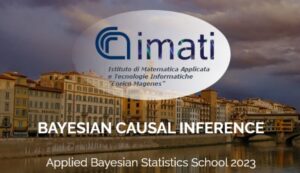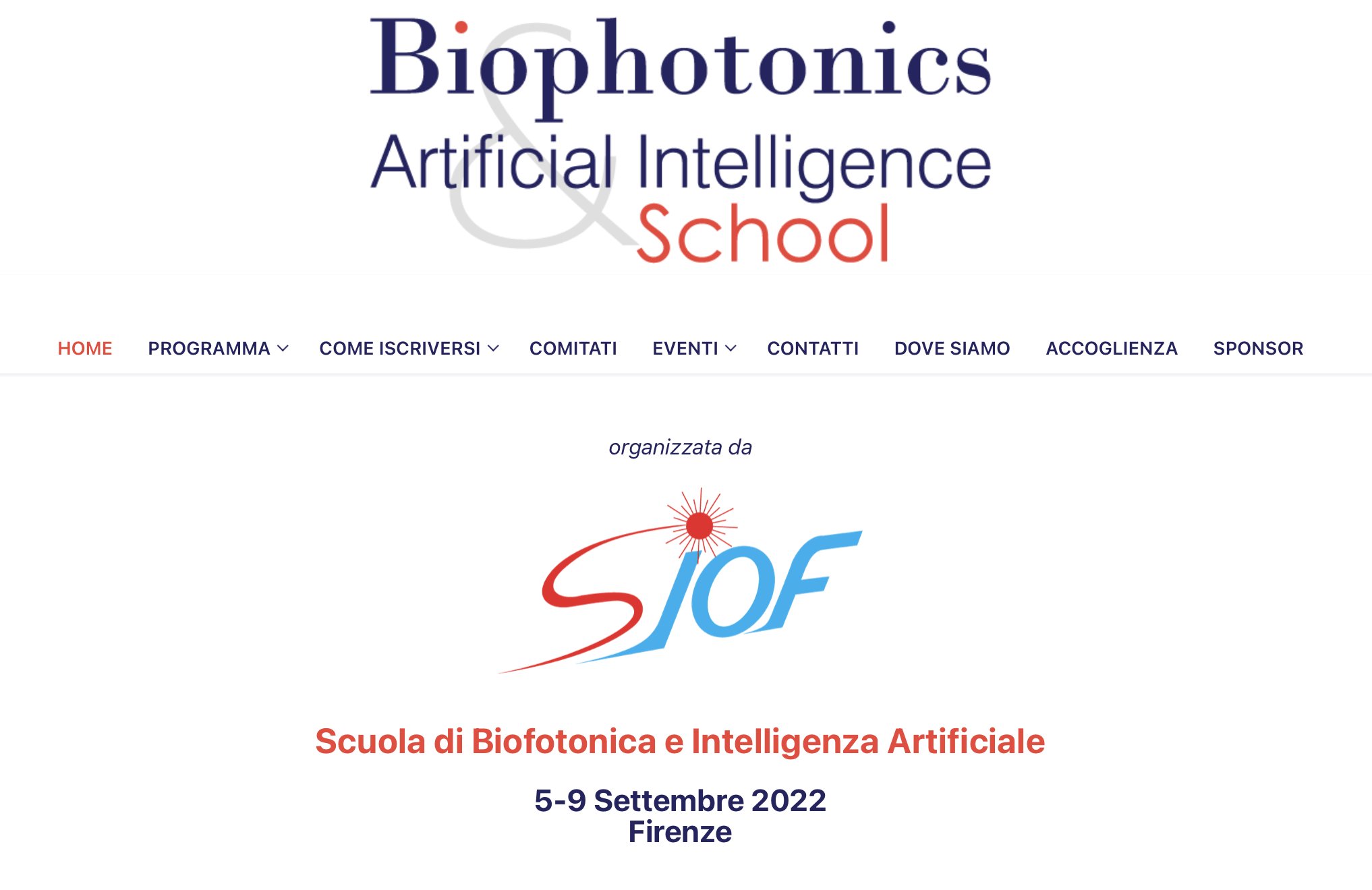Summer Schools & Short Courses

Bayesian Casual Inference Summer School
Applied Bayesian Statistics Summer School
Florence Center for Data Science, University of Florence
Firenze, Italy
12-16 June 2023
The school is organized by CNR IMATI (Institute of Applied Mathematics and Information Technologies at the Italian National Research Council in Milano), this year in cooperation with the Florence Center for Data Science and the Department of Statistics, Computer Science and Applications at the University of Firenze.
The topic chosen for the 2023 school is Bayesian Causal Inference.
The lecturer will be FAN LI (Duke University) with support from researchers at the University of Firenze.
As in the past (since 2004), there will be a combination of theoretical and practical sessions, along with presentations by participants about their work (past, current, and future) related to the topic of the school.
OUTLINE: The aim of this course is to introduce the fundamental concepts and the state-of-the-art methods for causal inference under the potential outcomes framework, with an emphasis on the Bayesian inferential paradigm. Topics will cover randomized experiments, common methods for observational studies, such as propensity score, matching, weighting, and doubly-robust estimation, heterogeneous treatment effects, sensitivity analysis, instrumental variables, principal stratification, panel data methods, and longitudinal treatments. Recent advances related to high-dimensional analysis and machine learning will be naturally incorporated into the discussion. All methods will be illustrated via real-world case studies.
If interested, you can register on the website.
REGISTRATION is now open but payments will be possible (by bank transfer or credit card) only after January 30, 2023.

Short Course "An Introduction to Multiplicity in clinical trials"
1st December 2022, from 2.30 – 5.30 pm
Speaker: Giacomo Mordenti – Head of Evidence Generation, Daiichi Sankyo Europe GmbH
Title: An Introduction to Multiplicity in clinical trials
Abstract: Multiplicity of inferences is present in virtually all the experiments and it is particularly critical for clinical trials. The usual concern with multiplicity is that, if it is not properly handled, has the potential to severely undermine the evidence generated from such experiments. In particular claims for safety and effectiveness of a drug may be made as a consequence of an inflated rate of false positive conclusions. Control of the study-wise rate of false positive conclusions at an acceptable level α is an important principle and is often of great value in the assessment of the results of confirmatory clinical trials. The presentation will cover:
- Introduction to the concept of multiplicity
- How it affects statistical conclusions of an experiment
- Introduction to the most common methods for handling multiplicity
- Introduction to the graphical models for multiplicity
- Case study
- Conclusions

Biophotonics & Artificial Intelligence School
School on Biophotonics and Artificial Intelligence
Firenze, Italy
4 – 8 September 2023.
Please note the deadline for enrollment is Friday 14th July 2023.
The school is organized by SchAI, the School on Artificial Intelligence in Health for people Well-Being, SIOF, the Italian community of Optics and Photonics, Italian branch of the European Optical Society and IFAC, the “Nello Carrara” Institute of Applied Physics, part of the CNR National Research Council. The School is also sponsored by PhotonHub Europe, the Pan-European photonics digital innovation hub and MDPI, the Multidisciplinary Digital Publishing Institute.
Please note that all courses will be held in Italian.
For any further request please contact: info.bpai@ifac.cnr.it.

Short Course "Time Series Models"
14th-15th June 2022
Speaker: Dante Amengual – CEMFI
Title: Time Series Models
Outline: This course studies statistical models for describing and predicting economic and financial time series, and analyzing the interrelations suggested by economic theory.
Topics:
- Univariate time series: Stochastic processes. Serial correlation and stationarity. Prediction theory and Wold decomposition. ARMA models. Temporal aggregation.
- Multivariate time series: Correlation structure and stationarity. VARMA models. Contemporaneous aggregation, marginalization, and causality. Impulse-response analysis. Dynamic models with latent variables. Kalman Ölter.
- Integration and non-linear models: Integrated processes. Cointegration. Non-linear models. ARCH and stochastic volatility. Dynamic models with time-varying parameters. Hamilton Ölter.